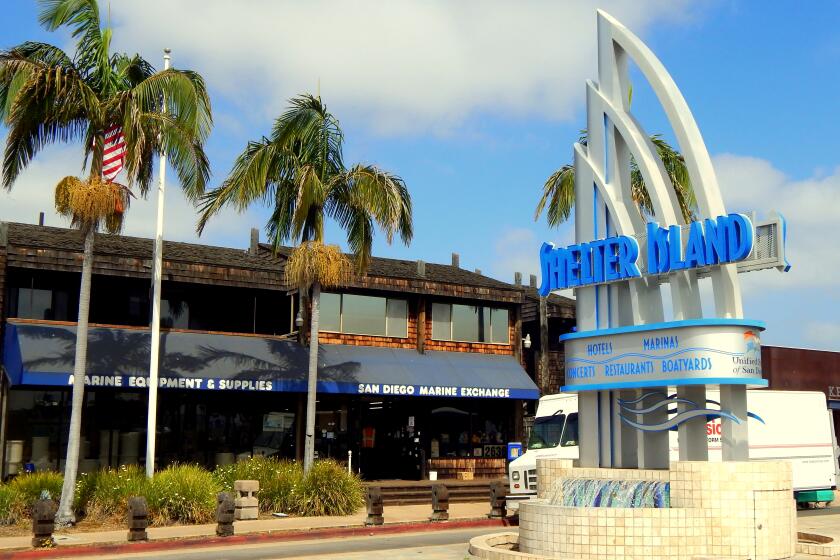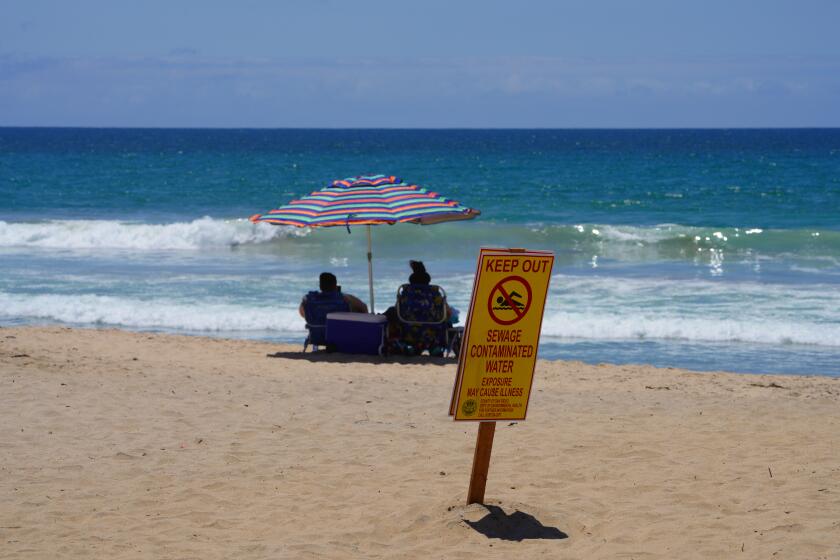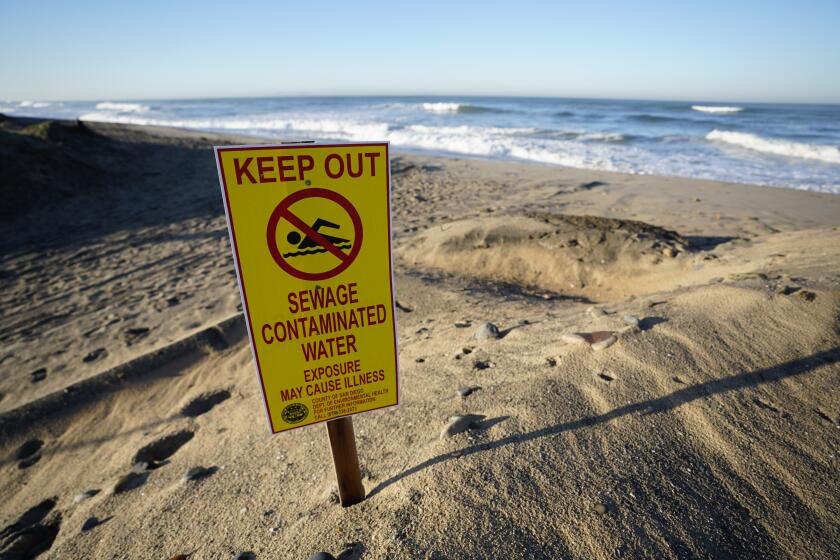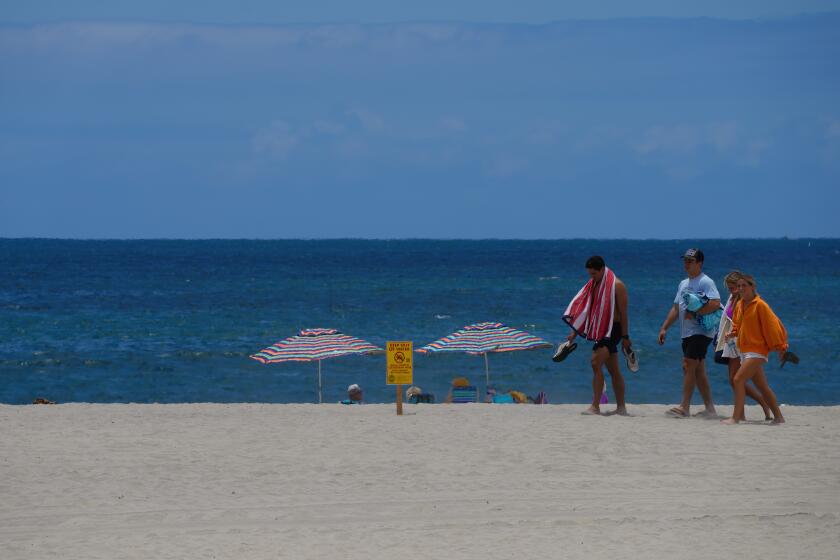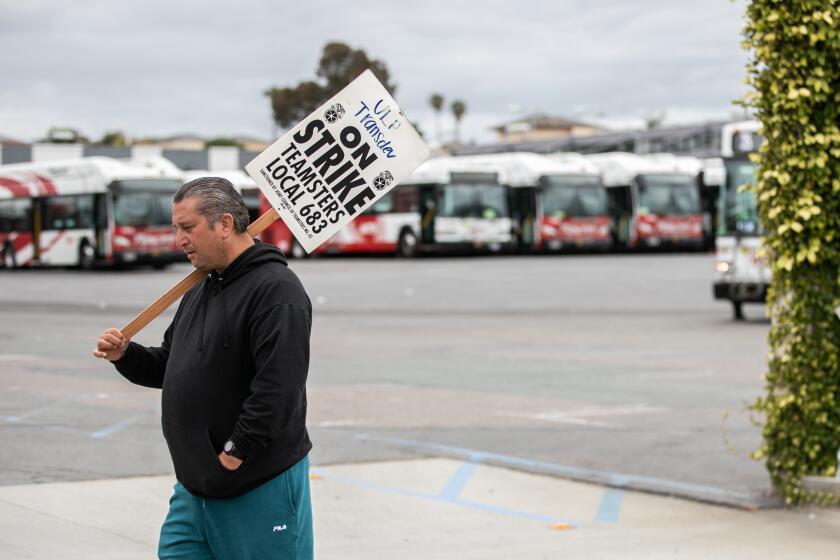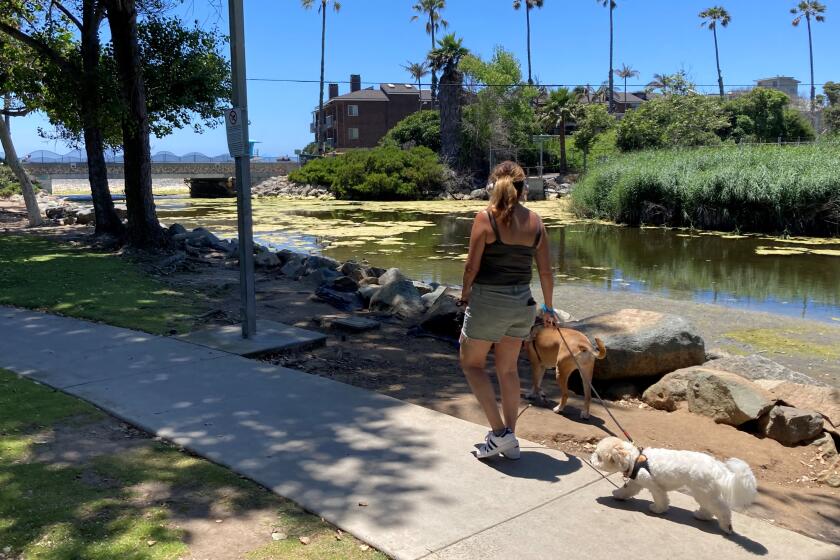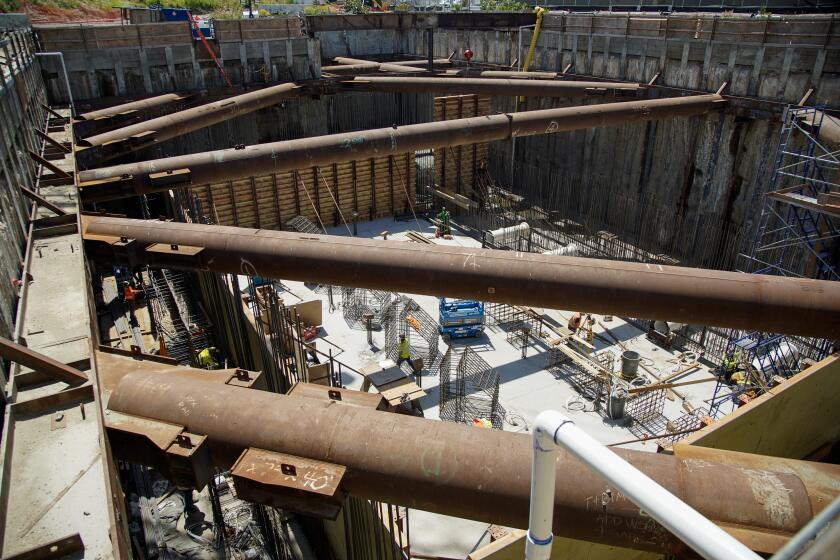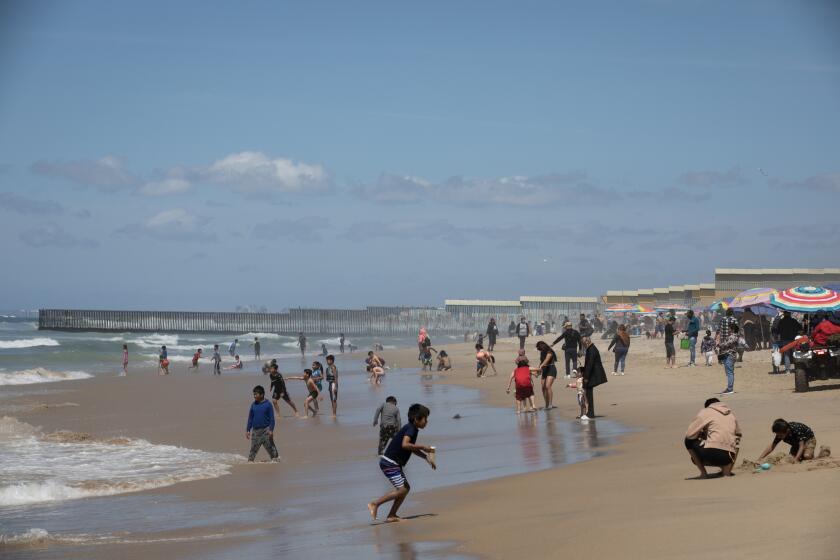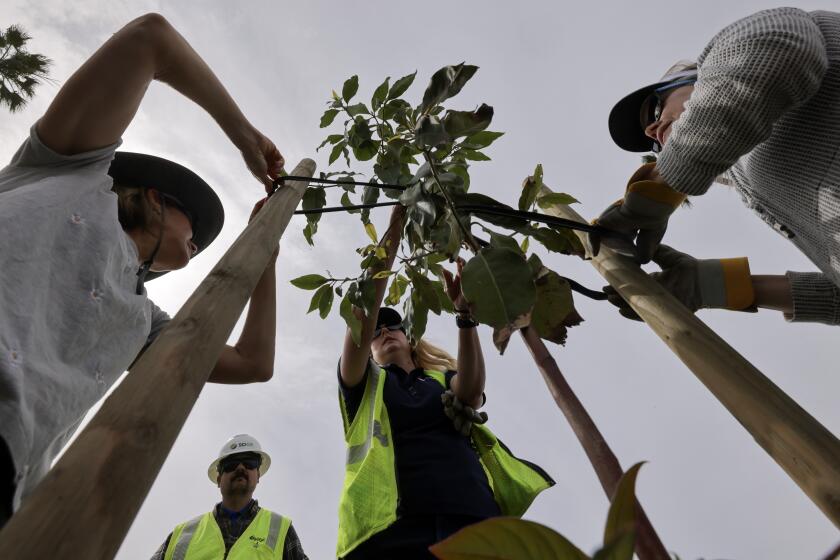Lawyers debate merit of Monsanto case
Lawyers for Monsanto on Wednesday asked a federal judge in San Diego to toss out the test case in a novel legal strategy aimed at holding the corporate giant responsible for millions in cleanup costs associated with chemical pollution in West Coast bays and rivers.
The motion to dismiss rested heavily on a technical argument that the city and the Port of San Diego have no legal standing to bring a public nuisance claim against the company for pollution from polychlorinated biphenyls, better known as PCBs.
While the contamination occurred decades ago, state regulators have forced the city and port district in recent years to remove PCB-tainted sediment from San Diego Bay. That cleanup process is ongoing.
Now more than half a dozen cities want Monsanto to shoulder the financial burden for similar cleanups. Over the decades, PCBs have increasingly been linked to cancer, neurological damage, thyroid problems and reproductive complications. Monsanto is the only known manufacturer of PCBs in the United States.
The right for San Diego and other cities to sue Monsanto is “no more available in the law than if I were able to sue the petroleum companies because I had to go get a permit for my smog certificate,” Robert Howard of Latham & Watkins, LLP, the attorney representing Monsanto, said during a hearing Wednesday.
If successful, the strategy against the company could significantly expand California’s public nuisance case law — putting future corporations on the hook in situations where standard product liability cases wouldn’t apply.
While Monsanto didn’t directly spill PCBs into the environment, the lawsuits rest on internal corporate documents that surfaced in previous lawsuits, which show Monsanto officials sold and promoted the chemical despite knowing of its dangers and that it would inevitably leach into the environment.
If U.S. District Court Judge William Hayes disagrees with Monsanto and allows the case to proceed, it will give significant momentum to similar efforts up and down the coast.
Cities that have joined the legal effort, spearheaded by the San Diego-based Gomez Trial Attorneys, include Long Beach, San Jose, Berkeley and Seattle, Wash.
While similar nuisance cases have historically failed in other parts of the country, a Santa Clara Superior Court judge issued a $1.15 billion judgment in 2014 against lead-paint manufacturers in a similar nuisance case. The case is currently on appeal.
Judge James Kleinberg, now retired, forced the defendants in that case to provide funding for abatement under what’s known as a “representative” claim on behalf of the public. While the port district has joined the litigation on behalf of the public, the city is seeking a so-called special injury for its own damages — a precedent not set in the Santa Clara County case.
It’s unknown when the judge will decide whether the case can proceed to trial and who can remain in the lawsuit.
Get Essential San Diego, weekday mornings
Get top headlines from the Union-Tribune in your inbox weekday mornings, including top news, local, sports, business, entertainment and opinion.
You may occasionally receive promotional content from the San Diego Union-Tribune.

